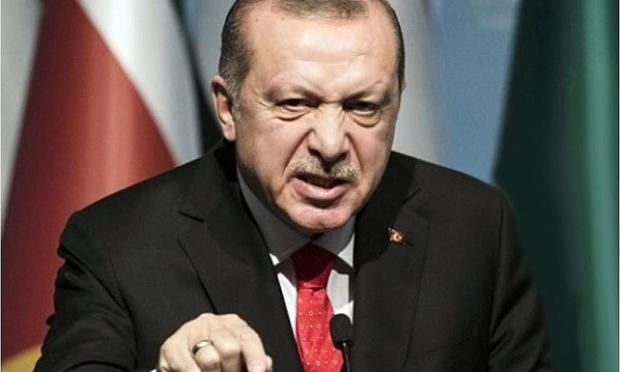Britain may be cooperating with Turkey for the engines of the TFX and the unmanned aircraft that the latter is preparing, but the fact that Greece is preparing to sign a declaration of defense cooperation with the United Kingdom this week shows that things are ready to change in the relations between London and Ankara. Maybe not as much as Athens would like but certainly to a respectable degree. This can also be seen from the articles in the British press.
Simon Tisbal writes characteristically in Gurdian that Erdogan should at some point start to be treated by the West even as an...enemy!
He writes, among other things: "Turkey is a 'vital strategic ally' of the West is the kind of truism on which people like Joe Biden and Jens Stoltenberg, the general secretary of NATO, are raised. What if the old saw is no longer valid? What if the leader of Turkey, taking advantage of this idea, betrays Western interests by pretending to be a partnership? Shouldn't this leader be seen as a liability, as a threat – even as an enemy?
Geography doesn't change. Turkey exerts significant influence at the crossroads of Europe, Asia and the Middle East. However, the increasingly aggressive, authoritarian and schismatic policies pursued at home and abroad for two decades by its choleric sultan president have upended long-held assumptions. Turkey's credibility and usefulness as a reliable Western ally is almost at an end.
As Turkey's most important election in a generation moves toward a fever pitch in May, and as Western democracies ponder critical choices in Ukraine, versus Vladimir Putin's Russia, and in Iran, Syria, and Israel-Palestine, these dilemmas are coming together to a basic question: is it time to admit that the two-faced Recep Tayyip Erdogan is no friend of the West – and punish him accordingly?
Erdogan's blocking of Sweden's bid to join NATO is the latest, blatant example of hostile behavior. It claims that Stockholm harbors "terrorists" from the militant Kurdish group PKK (Kurdistan Workers' Party). In fact, his veto stems from his long-standing anti-Kurdish vendetta, which includes legal moves to shut down the HDP (People's Democratic Party), the main Kurdish-backed opposition, ahead of the election. The row at NATO now threatens to explode amid a flurry of Koran burnings, diplomatic protests and violent reprisals.
Erdogan is also demanding the extradition of political refugees from Sweden, notably Bülent Keneş, former editor-in-chief of Zaman newspaper, whom he accuses of supporting a failed coup in 2016. Intimidation tactics against journalists are part of a wider post-coup push to crack down on public debate, manipulate the constitution, subjugate judges, purge the military and civil service – and strengthen de facto one-man rule.
Using Turkey's NATO membership for domestic political purposes is a typical Erdogan game. However, it also deliberately obstructs Sweden's (and Finland's) legitimate desire to strengthen its defenses following Russia's invasion of Ukraine, while undermining NATO's efforts to show unity and resolve. This is by no means the first time Erdoğan has favored Moscow over its NATO partners.
All of this leads back to the original question: what should Western democracies do about Erdoğan, assuming he wins again? More sanctions, including him personally, are a possibility. US senators suggest Ankara may refuse the F-16 fighter jets promised by Biden if it continues to sabotage NATO. EU membership negotiations could be officially frozen, indefinitely. However, to get Erdoğan's attention, any punitive measures would need to go further.
The overly cautious, risk-averse Biden and Stoltenberg must abandon old, discredited thinking. They should remind Erdogan that NATO is a community of values and norms. welcome Sweden and Finland into the alliance through a vote of all 30 members; and suspend Turkey's membership if necessary by amending the North Atlantic Treaty. Turkey lives in a difficult neighborhood.No one expects torrents of peace and love from its leaders. And he could be a valuable ally again. But Turkey is not necessary. If necessary, the Western democracies can live safely without it – until that happy day dawns when the ailing sultan of Ankara finally defends himself and is debauched.”



